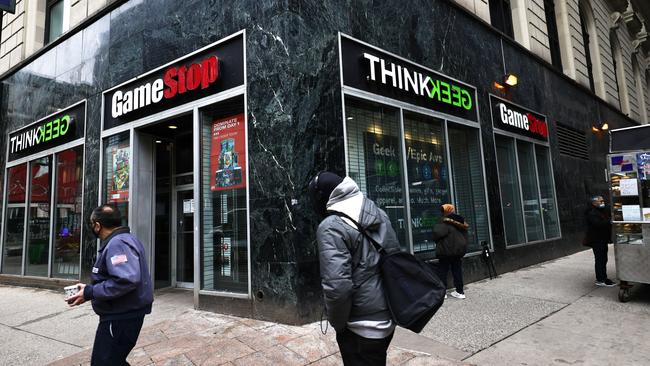
And those Australian “shorting games” are a mirror image of what has taken place in the US, albeit we operate on a much smaller scale.
And so Australians need to take real interest in the dramatic gyrations taking place in the shares of GameStop, where ordinary Americans band together to take on the big shorting hedge funds. Those ordinary Americans almost sent some of the hedge funds to the wall. Some made fortunes while others will lose heavily but they have changed the shorting game for ever.
So today I want to describe how shorting works in Australia and then apply the US GameStop experiences to our marketplace.
It was ironic that on the eve of the US shorting battle, the $10 billion Australian hedge fund Caledonia wrote to its clients to tell them it was planning to short Australia’s large office and retail based property trusts, plus others involved in the retail sector. Caledonia explained that short positions were fundamental to its success in 2020.
If Caledonia follows the normal pattern of Australian shorters it will borrow shares in our major property trusts from members of the big superannuation funds. Caledonia will then sell down the listed trusts using those borrowed shares to deliver to buyers. Caledonia aims to buy back at a lower price when they will then “repay” the shares they borrowed from members of the big funds.
I have no gripe with large hedge funds like Caledonia undertaking such activities because, at least in normal circumstances, they can afford any losses and the shorting is often linked to other investment strategies.
However the superannuation funds who lend shares are actually lending stock owned by ordinary Australians to groups that aim to reduce the value of those investments.
And so, for a fee, the funds are in fact reducing the value of stock held by ordinary Australians. Now the funds would argue that they are gaining an extra return on long term strategic holdings. But sometimes the hedge fund shorting games get very vicious and groups of hedge funds smash the share price of key Australian companies to the clear detriment of the members of superannuation funds who are unwittingly facilitating the trashing of their shares.
Given that greater disclosure is now an essential part of superannuation in Australia, members of superannuation funds should be told that their shares are being used in these games.
And in that context Australians need to understand what happened in the US because it could be repeated here.
GameStop is an American video game, consumer electronics and gaming merchandise retailer based in Texas. It has more than 5000 retail stores, including stores in Australia.
The hedge funds believed the GameStop share price was too high and borrowed shares from US institutions and began shorting GameStop to send the stock down as they had done countless times before.
What the US hedge funds did not anticipate was the power of a social media network called Reddit which had been set up by Alexis Ohanian. He mobilised countless thousands of smaller US investors who (often using borrowed money) began buying GameStop shares, so boosting the price, much to the dismay of the hedge funds.
Under their rules, when GameStop shares began rising, the hedge funds were forced to close their short positions by buying back GameStop shares. That pushed the share price even higher and as the share price rose more ordinary people joined the Reddit game and the shares achieved an almost 2000 per cent rise.
The losses in the hedge funds were staggering and at one point there were grave fears that it could trigger domino collapses, bringing down many hedge funds. The hedge fund movement began rescue efforts and a series of hedge funds began shorting at the higher prices to push the stock down.
Then the ordinary Americans came again. There have been some huge profits made by the Reddit supporters but over time the stock will slump and there will be big losses.
What we’re looking at is a revolt by smaller investors against the trashing of their stocks and they have shown that if they combine they can bring the hedge funds to their knees. If a hedge fund fails then those who have lent the hedge fund their shares will lose their stock and in the US, this has been shown to be a real possibility.
I have no particular concern for the hedge funds or the small investors (and those funding them) who knowingly want to use people power in taking on those big institutions.
Rather my concern is for the ordinary Americans whose shares held by institutions are being loaned to foster these games. And, of course, that’s exactly what is happening in Australia.
It is clearly possible listed property trust stock has not priced in what will emerge after COVID. If that’s the case the institutions should reduce their holding.
Instead the funds are creating an environment where the value of members assets are reduced.







Ordinary Australians who have their savings in industry and retail superannuation funds should be aware of their role in the “shorting games” in Australia.